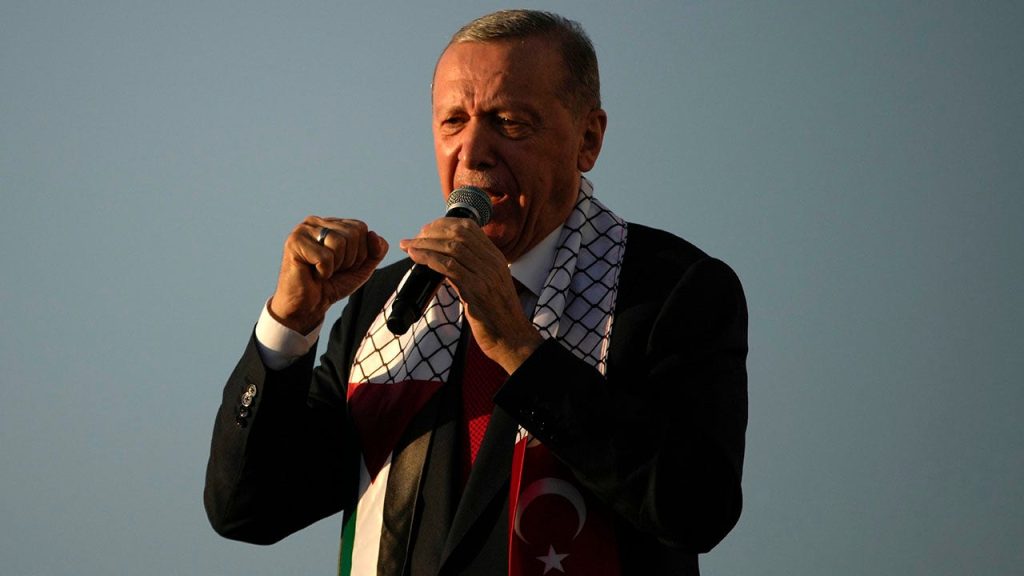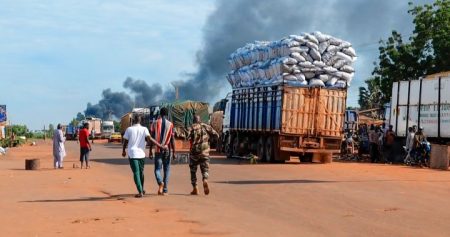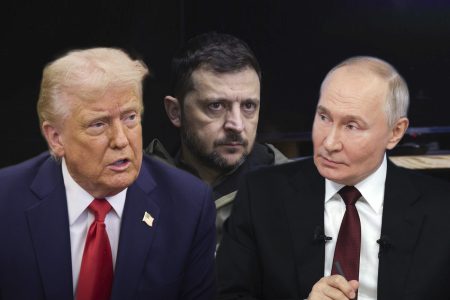The recent pronouncements by Turkish Foreign Minister Hakan Fidan regarding the elimination of the Syrian Kurdish YPG militia have sent shockwaves through Washington, jeopardizing the fragile stability of the region and the ongoing fight against ISIS. Fidan’s statement, made shortly after a meeting with US Secretary of State Antony Blinken, directly contradicts the stated US policy of cooperation with the YPG as a crucial component of the Syrian Democratic Forces (SDF), the primary US partner in the fight against ISIS in Syria. This stark divergence in strategic objectives underscores the growing tension between the two NATO allies and casts a shadow over future collaborations in the volatile region. The timing of Fidan’s statement, coming so soon after a meeting ostensibly focused on cooperation, raises serious questions about Turkey’s commitment to the shared goal of defeating ISIS and highlights the deep-seated distrust between Ankara and Washington regarding the Kurdish issue.
Turkey views the YPG as an extension of the Kurdistan Workers’ Party (PKK), a designated terrorist organization, and has consistently targeted the group within Syria. This stance clashes with the US view, which recognizes the YPG’s instrumental role in dismantling the ISIS caliphate and maintaining regional security. The US reliance on the SDF, of which the YPG is the main component, has been a cornerstone of its anti-ISIS strategy. Turkey’s continued aggression against the SDF, including drone strikes and artillery shelling, undermines this strategy and diverts crucial resources away from counter-terrorism operations. This not only weakens the fight against ISIS but also creates a power vacuum that could be exploited by other extremist groups. The potential resurgence of ISIS, facilitated by the destabilization caused by Turkey’s actions, poses a significant threat to regional and international security.
The Turkish offensive against the SDF also jeopardizes the security of detention camps holding thousands of captured ISIS fighters. The SDF, under constant attack, has been forced to redirect resources to defend against the Turkish incursion, leaving these camps vulnerable to breaches and potential mass escapes. This dire scenario, warned about by SDF commander General Mazloum Abdi, could lead to a resurgence of ISIS and further destabilize the region. The potential release of thousands of hardened ISIS fighters would not only threaten Syria but could also have far-reaching consequences, potentially inspiring renewed terrorist activity globally. The international community must recognize the gravity of this situation and exert pressure on Turkey to cease its attacks and prioritize the containment of ISIS.
The broader implications of Turkey’s actions extend beyond the immediate threat of ISIS resurgence. The ongoing conflict fuels regional instability, exacerbates the humanitarian crisis in Syria, and displaces vulnerable populations. The targeting of Kurdish communities raises concerns about human rights abuses and further complicates the already complex political landscape of the region. Experts warn that Turkey’s actions are driven by President Erdoğan’s expansionist ambitions and a desire to reshape the demographic composition of northern Syria. This approach undermines international efforts to achieve a peaceful resolution to the Syrian conflict and threatens to prolong the suffering of the Syrian people. The international community must condemn these actions and work towards a sustainable solution that respects the rights and security of all Syrian communities.
The United States faces a difficult challenge in balancing its relationship with Turkey, a NATO ally, and its commitment to the SDF in the fight against ISIS. While the US has brokered ceasefires and engaged in diplomatic efforts to de-escalate the situation, Turkey’s continued aggression underscores the limitations of these efforts. Some US lawmakers, including Senator Lindsey Graham, have called for sanctions against Turkey as a means of deterring further attacks on the SDF. Such a move, while potentially effective, risks further straining the US-Turkey relationship and could have unintended consequences for regional stability. The US must carefully consider its options and pursue a strategy that prioritizes the defeat of ISIS and protects the vulnerable populations of northern Syria.
The complex situation in Syria requires a multifaceted approach that addresses both the immediate security concerns and the long-term political challenges. The international community must work together to pressure Turkey to cease its offensive against the SDF, secure the ISIS detention camps, and engage in constructive dialogue to address the underlying causes of the conflict. A failure to act decisively will not only prolong the suffering of the Syrian people but also risks the resurgence of ISIS and further destabilization of the region, posing a significant threat to global security. The international community must prioritize the protection of civilians, the promotion of human rights, and the pursuit of a lasting peace in Syria. The future of the region, and indeed the world, may depend on it.










